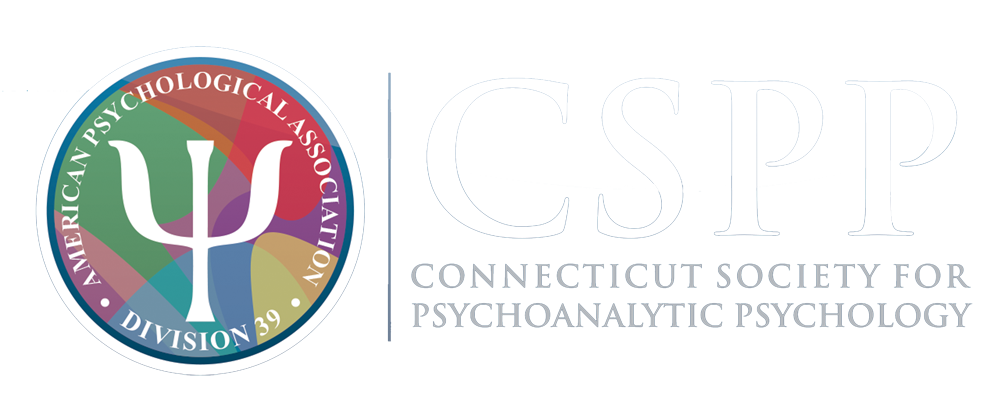The Connecticut Society for Psychoanalytic Psychology
Presents a Clinical Conference
Maria Elena Oliva, LCSW

A Healing Journey of the Bilingual Self:
In Search of the Language of the Heart
May 6, 2017
10:30 am – 12:30 pm
The New Haven Lawn Club
193 Whitney Ave, New Haven
Lunch will follow for all attendees
Summary
For a bilingual client, psychotherapy experienced in a second language is complicated. It does not always provide healing or helpful outcomes. Much can be misunderstood and much can be missed altogether. Language is in the spotlight when we consider therapy with bilingual clients. Yet, language is rarely the focus of psychotherapeutic work that is referred to as the “talking cure.”
This presentation will examine the challenges that the bilingual individual must navigate in their two languages, the challenges the therapist may also have to navigate within their internal world of dual languages, and how these impact on the treatment. We will understand the first language, the mother tongue, as the language of emotions, and the second language as the language of detachment and distance.
Speaker
Maria Elena Oliva, LCSW earned her Master’s degree at Fordham University at Lincoln Center with a special interest in treatment of children and their families. She worked in Child Guidance Centers in New York, and later Connecticut, confronting the many challenges experienced by a growing monolingual and bilingual population to receiving linguistically competent psychotherapy.
Ms Oliva is currently a doctoral candidate at the Smith College School of Social Work where she is exploring the impact of bilingualism on supervision and clinical training of the bilingual social worker. As a child immigrant to the United States from Cuba, Ms Oliva has lived and been educated within the duet of two languages. She believes that it is these voices that always remind her of home, that speak to her in the language of the heart. Ms Oliva has presented on the impact of therapy in the second language at two NASW annual conferences, groups of psychotherapy practitioners and to several university groups.
Location
The New Haven Lawn Club
193 Whitney Ave, New Haven
Conference Schedule
10:00 – 10:30 Registration and Continental Breakfast
10:30 – 12:30 Presentation
12:30 – 1:00 Lunch for All Attendees
To Register and Pay
Register and pay online with your credit card or paypal.
To pay by check, print and fill out the registration form and mail with your check to Conference Registrar, Nir Yehudai, LMSW, 303 Mansfield St #1, New Haven, CT 06511 Mailed registrations must be postmarked by April 24 to qualify for early registration discount.
Click here for mail in registration form.
Members - remember to log in to register as a member.
Refunds will be given in full if the Conference Registrar, Nir Yehudai, LMSW, is contacted at Nir Yehudai no later than the Monday before the conference.
Recommended Readings
Movahedi, S. (1996). Metalinguistic analysis of therapeutic discourse: Flight into a second language when the analyst and the analysand are multilingual. Journal of the American Psychoanalytic Association, 44, 837-862.
Tummala-Narra, P. (2016). Considering the role of language and affect. In Psychoanalytic Theory in Cultural Competence in Psychotherapy (pp. 111-138). APA. Washington, D.C. Click here for printable copy.
Espín, O. M. (2013). “Making love in English:” Language in psychotherapy with immigrant women. Women& Therapy, 36, 198-218. Click here for printable copy.
Santiago-Rivera, A. L. & Altarriba, J. (2002). The role of language in therapy with the Spanish-English bilingual client. Professional Psychology: Research and Practice Vol. 33 (1),
30-38.
Hill, S. (2008). Language and intersubjectivity: Multiplicity in a bilingual treatment. Psychoanalytic Dialogues, 18, 437-455. Click here for printable copy.
Lijtmaer, R.M. (1999). Language shift and bilinguals: Transference and Countertransference Implications. Journal of American Academy of Psychoanalysis. 27, 611-624.
Clauss, C. S. (1998). Language: The unspoken variable in the psychotherapy practice. Psychotherapy, 35, 188-196.
Participants
The conference is appropriate for professionals interested in the practice of psychoanalysis and psychoanalytic psychotherapy. The instructional level of this conference is intermediate.
Learning Objectives
1. Distinguish between the balanced and the dominant forms of bilingualism.
2. Explain the therapeutic value/importance of language switching.
3. Describe how a bilingual individual possesses a dual sense of self
Continuing Education
This conference has been approved for for 2 continuing education hours (NASW & Div. 39)
Division 39 is committed to accessibility and non-discrimination in its continuing education activities. Participants are asked to be aware of needs for privacy and confidentiality throughout the program. If program content becomes stressful, participants are encouraged to process these feelings during discussion periods. If participants have special needs, we will attempt to accommodate them.
Please address questions, concerns and any complaints to Ellen Nasper, PhD, at Ellen Nasper.
